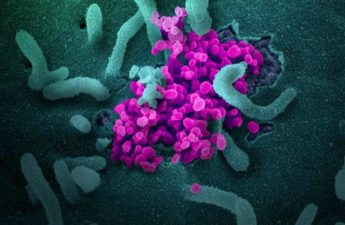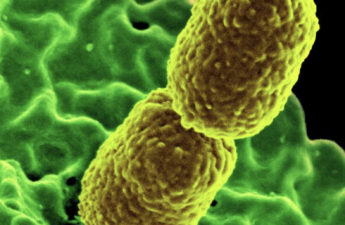Category: Public Health
Americans own guns to protect themselves from psychological as well as physical threats
Contemporary American gun ownership may have conflicting messages embedded within it. First, a gun is a thing you can use to bolster your fundamental psychological needs to feel safe, to feel in control and to feel like you matter and belong. Second, having a gun focuses your attention on the dangers of the world.
Health risks are rising in mountain areas flooded by Hurricane Helene and cut off from clean water, power and hospitals
Contaminated water is one of the leading health risks, but residents also face harm to mental health, stress that exacerbates chronic diseases and several other threats.
Calisthenics: five ways this bodyweight workout can benefit your fitness
Typical calisthenics exercises include push-ups, squats and lunges. This training method harnesses gravity and your own bodyweight to build strength, flexibility and endurance. It’s incredibly versatile and can be performed almost anywhere, as you don’t need any equipment.
HOW TO REDUCE EXPOSURES TO TOXIC CHEMICALS IN YOUR HOME
Many household items can contain toxic chemicals, including cleaning products, personal care products, pesticides, insecticides, and paints.
Rabid Bat Found in Renton
Anyone who might have had contact with this bat (even if not bitten) could be at risk and should seek medical evaluation immediately or call Public Health at 206-296-4774 to determine if rabies preventative treatment is necessary.
More children are getting ACL injuries – here’s what could be done to prevent them
One particularly nasty sporting injury is damage to the ACL – the anterior cruciate ligament in the knee, which attaches the thigh (femur) and shin (tibia) bones. ACL injuries have rocketed among children in England, and our research suggests that one cause of this is that children are not developing basic movement skills, such as jumping and hopping.
Accidental falls in the older adult population: What academic research shows
Accidental falls are among the leading causes of injury and death among adults 65 years and older worldwide. As the aging population grows, researchers expect to see an increase in the number of fall injuries and related health spending.
Microplastics are in our brains. How worried should I be?
Sarah Hellewell, Curtin University; Anastazja Gorecki, University of Notre Dame Australia, and Charlotte Sofield, University of Notre Dame Australia Plastic is in our clothes, cars, mobile phones, water bottles and food containers. But recent research adds to growing concerns about…
Expert: The Impact of Climate Change on Global Nutrition Is a National Security Issue
Weather events over the past several years have led to lower harvests, lost agricultural incomes and increasing food prices. All those factors contribute to increasing rates of malnutrition.
Wildfire smoke is a health risk for pregnant people — both physically and mentally
As the West’s wildfire season worsens, a new Human Rights Watch report urges policymakers to address the toll it’s taking on pregnancy and birth outcomes.
U.S. Has Lowest Life Expectancy Among Rich, English-Speaking Countries: Study
A new study comparing expected lifespans among six high-income English-speaking countries found that Australians live the longest while American lifespans faltered over the last three decades.
COVID infections spreading in Oregon, Washington and California
Washington saw 2,905 positive COVID tests in the week ending July 27. The weekly trend rate, which is determined by taking the number of positive tests divided by the population and multiplying by 100,000, is 36.9. The weekly rate of positive tests has gone up steadily over recent weeks. The average number of hospitalizations over the week ending in July 27 was 260. Just over 3% of hospital beds in the state were occupied by COVID patients.
As wildfires become more frequent and intense, how will persistent smoke exposure affect long-term health?
Although Canada has seen notable improvements in air quality over the past 30 years, increasingly frequent and intense periods of wildfire smoke threaten to undo this progress. In the last two decades, while emissions from most pollution sources declined, Canadians’ exposure to wildfire smoke has increased by approximately 220 per cent.
Health News Headlines
Wildfire smoke expected in Seattle – ACL tears in women – 5 ways to manage hypertension
Audit finds cracks in Washington’s egg inspection program
Washington’s Department of Agriculture failed to complete hundreds of required inspections of egg production and packing facilities in recent years, raising food safety concerns, according to a new state audit.














